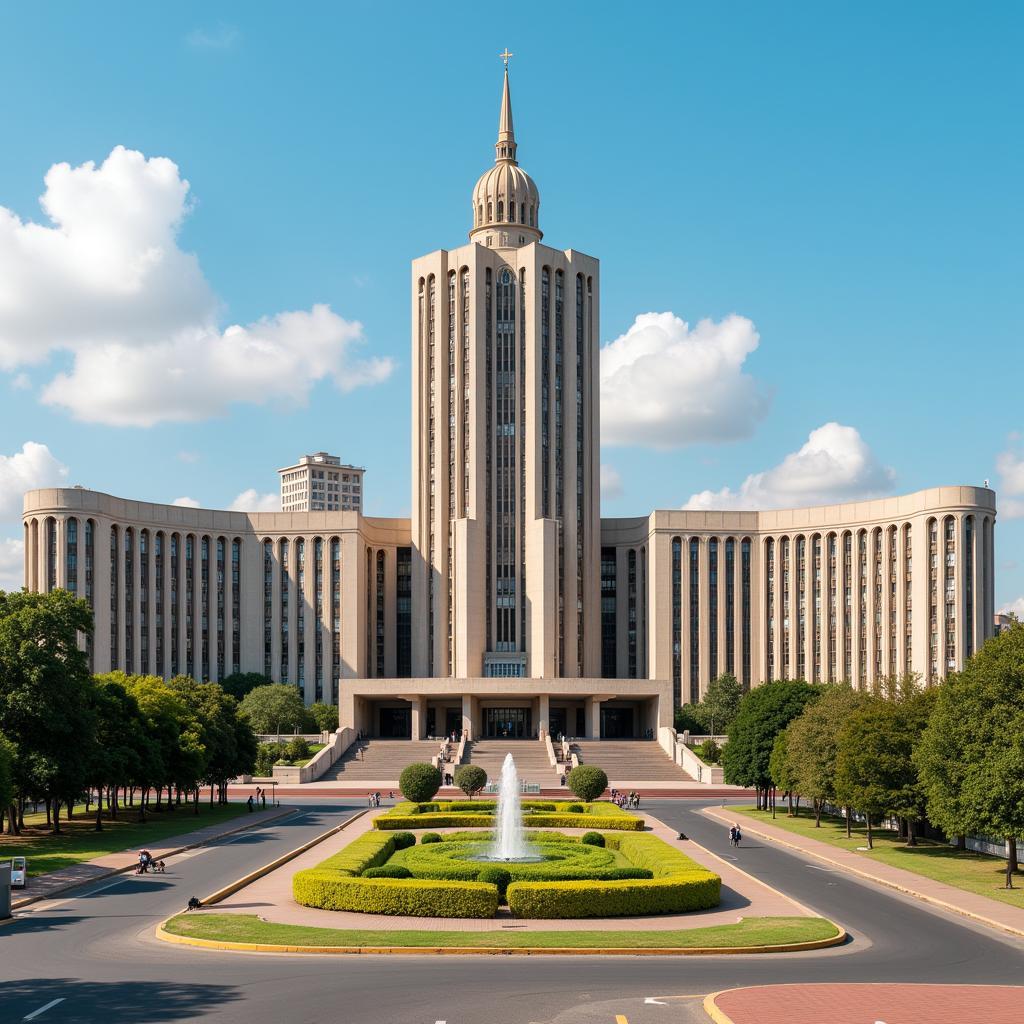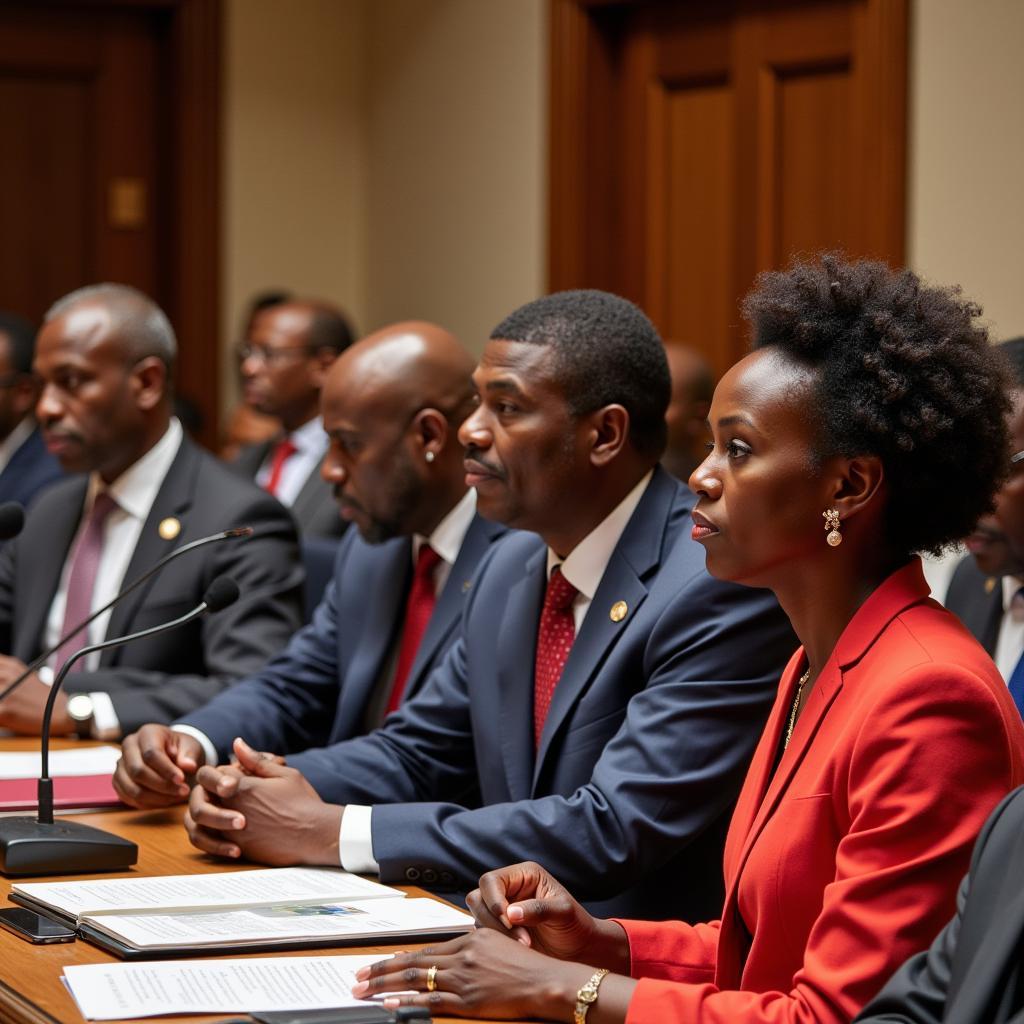African Journal Political Science International Relations: Navigating the Complexities
The intersection of African politics, international relations, and political science forms a dynamic and often challenging field of study. “African Journal Political Science International Relations” encapsulates a wide array of topics, reflecting the continent’s diverse political landscapes, historical interactions with global powers, and evolving role in the 21st century.
 African Union Headquarters Building in Addis Ababa, Ethiopia
African Union Headquarters Building in Addis Ababa, Ethiopia
Decolonizing Discourse: A New Era in African Political Science
For decades, the study of African politics and international relations was largely shaped by Western perspectives. However, a new generation of scholars is pushing for decolonized approaches that prioritize African voices and experiences. This shift involves:
- Challenging Eurocentric Theories: Critically examining how traditional political science frameworks, often developed in Western contexts, may not fully capture the nuances of African political systems.
- Centering African Agency: Moving beyond narratives of victimhood or dependency, and highlighting the agency, resilience, and innovation within African societies.
- Embracing Local Knowledge Systems: Incorporating indigenous knowledge, oral histories, and local languages to provide a richer understanding of political dynamics.
 A group of African leaders at a summit, engaged in discussions.
A group of African leaders at a summit, engaged in discussions.
Key Themes in African International Relations
Understanding contemporary Africa requires grappling with complex historical legacies and ongoing global power dynamics. Some key themes include:
- The Legacy of Colonialism: Examining how colonial borders, economic structures, and political systems continue to influence present-day realities.
- Pan-Africanism and Regional Integration: Exploring efforts to foster unity, cooperation, and development within Africa, such as through the African Union (AU).
- China’s Growing Influence: Analyzing the implications of China’s increasing economic and political engagement with African nations.
- Peace and Security Challenges: Addressing issues of conflict, terrorism, and instability, and exploring mechanisms for conflict resolution and peacebuilding.
- Sustainable Development Goals: Assessing Africa’s progress towards achieving the UN’s Sustainable Development Goals and the challenges that lie ahead.
The Role of African Journals
Scholarly journals play a crucial role in disseminating research, fostering academic debate, and shaping the field of African political science and international relations. Key contributions include:
- Providing a Platform for African Scholars: Offering a space for African researchers to publish their work and contribute to global knowledge production.
- Showcasing Diverse Perspectives: Highlighting a range of views and approaches, moving beyond Western-centric analyses.
- Promoting South-South Dialogue: Facilitating intellectual exchange and collaboration among scholars from the Global South.
Conclusion: Towards a More Nuanced Understanding
The study of “African Journal Political Science International Relations” requires a nuanced and critical lens. By embracing diverse methodologies, centering African voices, and engaging with the continent’s complex realities, we can gain a deeper understanding of Africa’s political landscape and its place in the world.
FAQs:
1. What are some reputable African journals on political science and international relations?
Some examples include the African Journal of Political Science and International Relations, the Journal of Modern African Studies, and the Review of African Political Economy.
2. How has the end of the Cold War impacted African international relations?
The Cold War’s end ushered in a period of significant change, with African nations navigating new global power dynamics and shifting alliances.
3. What is the African Continental Free Trade Area (AfCFTA)?
The AfCFTA is a trade agreement aimed at creating a single market for goods and services across Africa, with the goal of boosting intra-African trade and economic development.
4. What are some of the challenges facing democracy in Africa?
Challenges include issues of poverty, inequality, corruption, weak governance structures, and electoral irregularities.
5. How can I learn more about African politics and international relations?
In addition to academic journals, resources include books, documentaries, news outlets, and think tank publications.
Need Support?
Contact us at Phone Number: +255768904061, Email: [email protected], or visit us at Mbarali DC Mawindi, Kangaga, Tanzania. Our customer service team is available 24/7.

